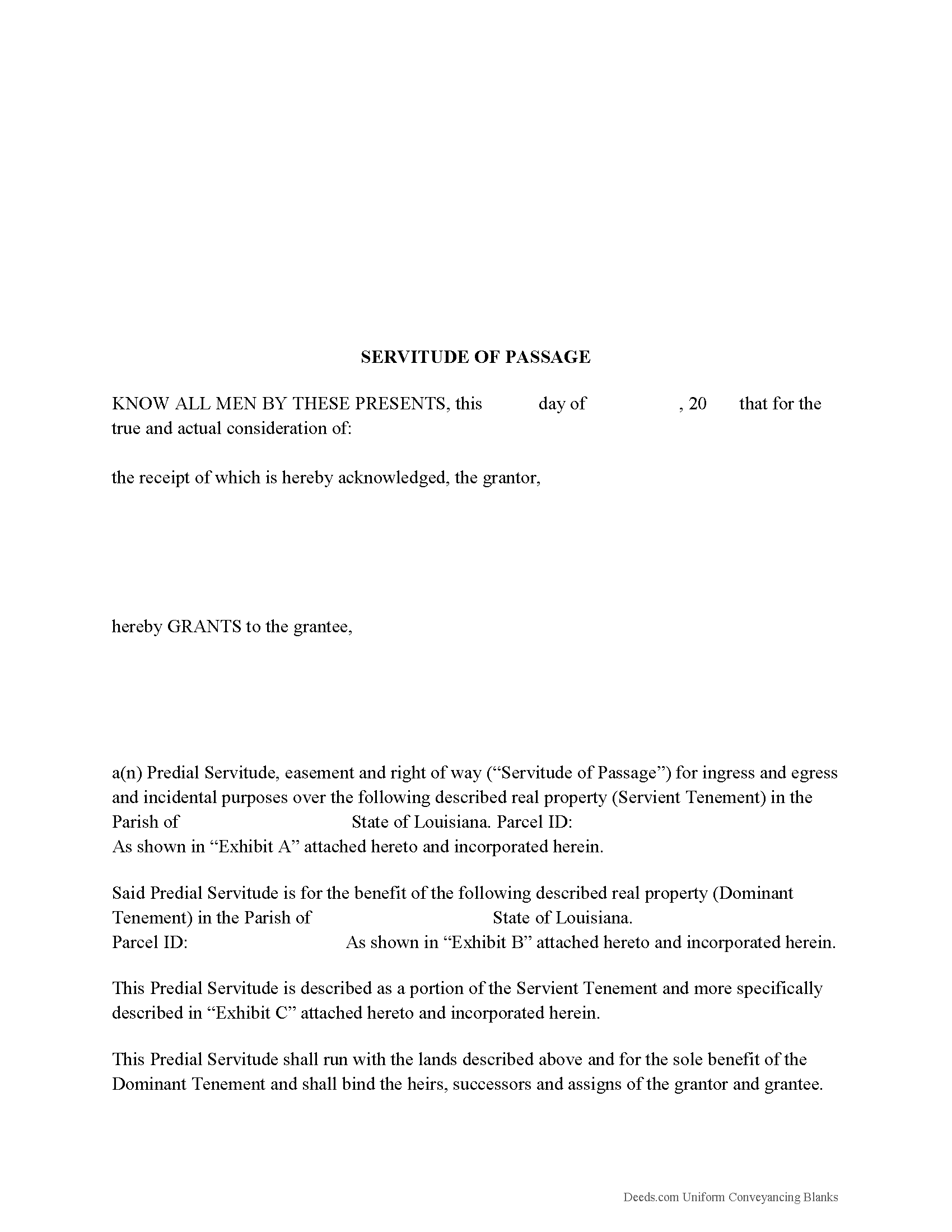Download Louisiana Easement Deed Legal Forms

Louisiana Easement Deed Overview

Louisiana law recognizes servitudes, which are similar to easements and can be defined as a burden or charge on one property that is for the benefit of another property. There are two types of servitudes: predial and personal (CC 533). A predial servitude is closely related to an easement appurtenant and is a burden on the servient estate for the benefit of the dominant of estate. A personal servitude is a charge or burden on something for the benefit of an individual. The three types of personal servitude are: usufruct (the use of property for a benefit as long as it is not damaged), habitation, and right-of-use (this is similar to an easement while allowing use of the property but denying full enjoyment of the property) (CC 534). A usufruct can be established by juridical act or by operation of law (CC 544).
As an interest in real property (immovable property) in Louisiana, an easement deed or servitude is subject to the laws of other real estate instruments. The grantor to an easement deed should sign the instrument and have his or her signature acknowledged. Some recording clerks in Louisiana will require the signature to be in authentic form, which although not a statutory requirement is nonetheless a common practice in Louisiana. An instrument in authentic form requires the signature of each party who executed the instrument. Easement deeds may be acknowledged in Louisiana or out-of-state. If executed out of state, an easement will have the same force and effect as if executed by or before a notary public in Louisiana (RS 35:5).
There are three different types of written instruments in Louisiana: the authentic act, the act under private signature duly acknowledged, and the act under private signature or writing. The authentic act is used for most deeds and recorded documents. An authentic act is executed in writing before a notary public, in the presence of two witnesses, and signed by each party who executed the warranty deed or other instrument. Both the witnesses and notary public must sign. The act under private signature duly acknowledged is a written instrument signed before a notary public. The presence of witnesses is not required for the signing of this type of document; however, witnesses need to be present when the notary signs. The act under private signature is not used often.
Easement deeds and other real estate instruments are recorded in the parish at the clerk of courts office in the parish where the real property (immovable) is located. An easement deed is not effective against third persons until the easement deed is filed for registry in the conveyance records of the parish where the real property is located (CC 517). This type of recording act is known as a race statute. Priority of documents is determined by the order of filing.
(Louisiana ED Package includes form, guidelines, and completed example)